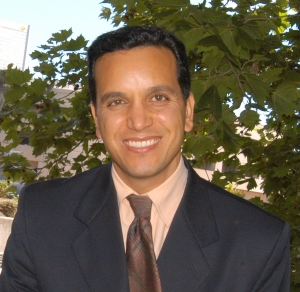Coup for Deakin researcher
Research news
Professor Fethi Mansouri’s appointment as the new UNESCO Chair in Comparative Research on Cultural Diversity and Social Justice is a coup for both Australia and for Deakin University.
It is also a significant affirmation of Professor Mansouri’s research expertise.
This focusses on:
- The plight of people who are forced to move from one country to another.
- The issues they face when settling in a host country.
- The inter-relationships between the ensuing diversity engendered by human mobility on one hand and the corresponding policies adopted by the host society (and its many institutions) on the other.
Increasingly Professor Mansouri’s focus has shifted from the experiences of forced migrants from the Middle East and North Africa settling in Australia to the global movement of people from one country to another.
“This new role is exciting but it will also be very challenging adding a new global dimension to the research program I am already undertaking,” Professor Mansouri said.
Professor Mansouri is the Director of the University’s Strategic Research Centre, the Centre for Citizenship and Globalisation.
Deakin Deputy Vice-Chancellor (Research) Professor Lee Astheimer congratulated Professor Mansouri on his achievement.
"This is wonderful news for Fethi and recognition of his work in this most significant of research areas," Professor Astheimer said.
"It also reflects well on the University as it works to make a difference through world-class innovation and research."
A key part of Deakin's strategic plan is expanding the University's international research footprint by fostering a platform for research collaboration in areas of global significance.
This includes working with leading groups in Asia, Europe and North America.
Professor Mansouri said the UNESCO chair is about improving the capacity of institutions to work globally and form partnerships with each other to deal with these problems which transcend the borders of any single state.
“Indeed UNESCO sees clear links between its core mission and the UN Millennium Development Goals as they relate to and rely on improved intercultural relations as a key dimension of human development," he said.
The research program to be implemented under the auspices of the Chair would be multi-disciplinary in its approach and comparative in its application.
“It will investigate the manifestations and implications of diversity and justice domestically, regionally and at the international arena,” Professor Mansouri said.
“There will also be a special focus on issues confronting African Diaspora communities, migrant youth and women, and therefore the UNESCO research program will necessarily draw on my recent and current collaboration with experts, NGOs and individuals from North Africa, the Middle East, South East Asia and Europe.
“Ultimately we hope to create a think tank and be a bridge builder between researchers, civil society and policy makers interested in the critical issues of cultural diversity and social justice.”
Professor Mansouri has regularly argued for better integration policies for migrants and increased educational resources for youth and migrant youth especially.
His research has called for young migrant youth to be better engaged into the wider society.
He has consistently called for cultural intolerance to be tackled as a matter of national priority.
He is currently leading many research projects including Australian Research Council projects on ‘Muslim Religiosity in Secular Cities’, ‘Migrant Youth and Social Connectedness’, and ‘Intercultural Understanding in Schools’.
In 2011 and in partnership with the Federal Government and the Victorian state government as well as peak multicultural bodies, Professor Mansouri brought the UN Forum on Social Inclusion to Australia for the first time.
Professor Mansouri has also served as a global expert advisor to the United Nations (Alliance of Civilisations) on cultural diversity and intercultural relations.
He is the editor of the Journal of Intercultural Studies and founding co-editor of the international journal on Social Inclusion.
Share this story
 This new role is exciting but it will also be very challenging adding a new global dimension to the research program I am already undertaking, says Professor Fethi Mansouri.
This new role is exciting but it will also be very challenging adding a new global dimension to the research program I am already undertaking, says Professor Fethi Mansouri.
